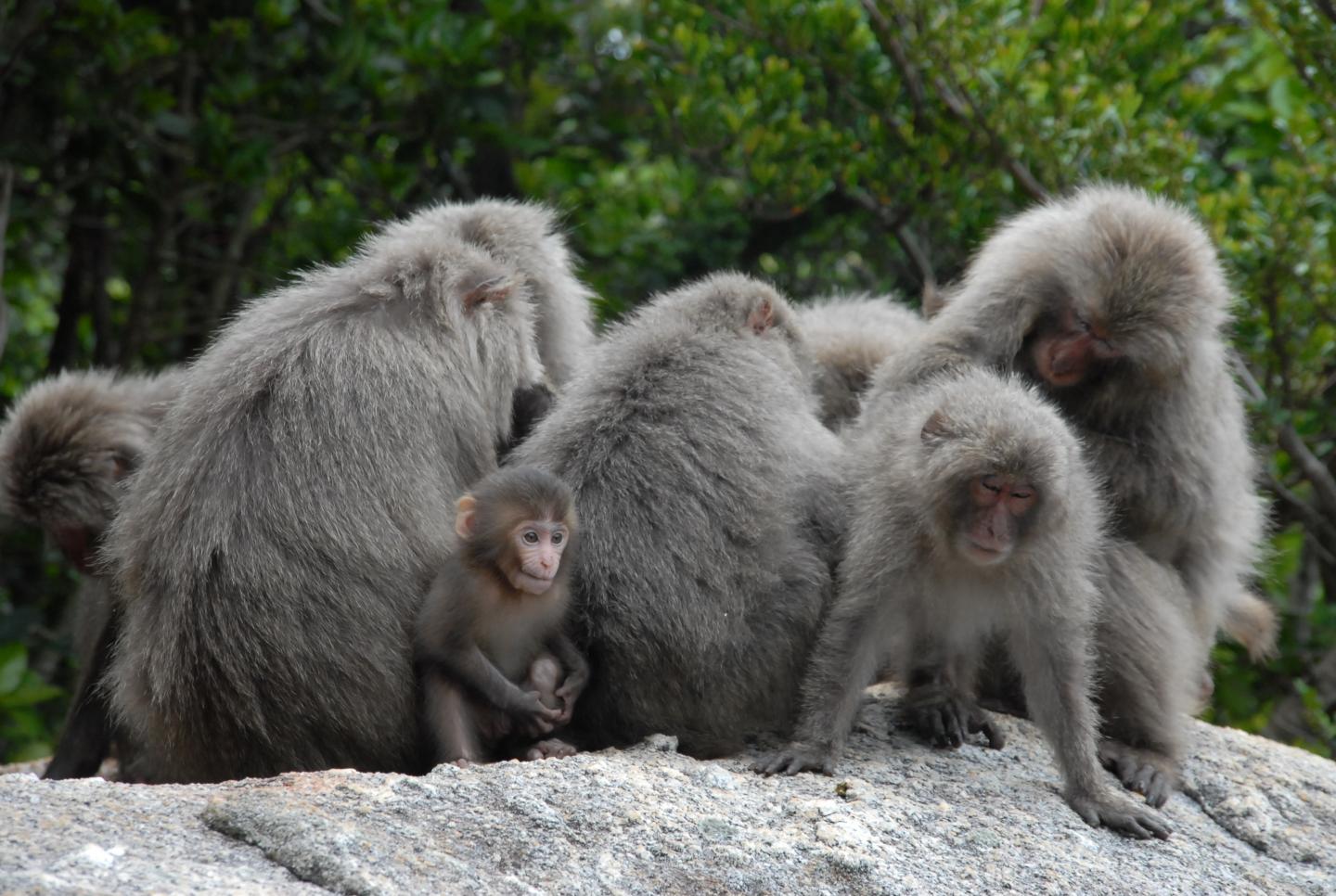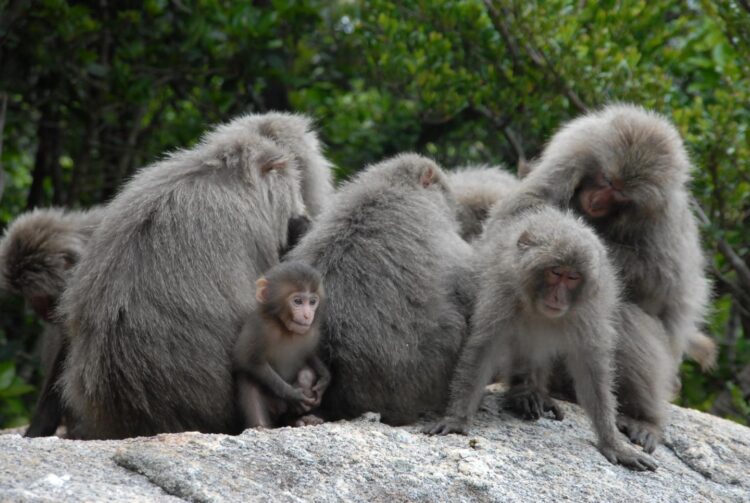How are information, disease, and social evolution linked?

Credit: Kyoto University/Andrew MacIntosh
Changing ties that naturally bind
How are information, disease, and social evolution linked?
Kyoto, Japan — Animals use social information for a variety of reasons, including identifying new foraging areas or of threats from predators.
However, gaining this information requires physical contact among individuals, an action that risks spreading contagion. This leads to an evolutionary trade-off: what information does an individual stand to gain at the risk of possible infection?
Both social information and disease transmission are governed by our social structures, shaping how we live. Yet information and infection are rarely investigated as interactive factors driving social evolution.
Publishing in Trends in Ecology and Evolution, a collaborative research group from Kyoto University’s Primate Research Institute, Institut Universitaire de France, and the University of Strasbourg, describes the opposing evolutionary forces that give rise to the social networks of which we are a part.
“We live in an increasingly connected world, and these connections bind us together in nature,” explains study coauthor Andrew MacIntosh.
“As such, we have always had to navigate the costs and benefits of social relationships, an experience that is shared with myriad other organisms that live in groups.”
But what governs the structures of our social worlds? Sharing information and cooperation ties us together, but the current global pandemic reminds us that there are limits to our social connectedness, demanding changes in our behavior.
“Social animals face two key needs: access to information about key resources, and avoidance of pathogens that can make them sick,” continues lead author Valéria Romano.
The team began by reviewing literature on social transmission and the strategies employed by animals to reduce the costs of connectedness. They found examples where evolution has resulted in potential solutions to our ongoing social dilemmas protecting us from infectious diseases.
Common strategies include individuals self-isolating, or uninfected individuals actively avoiding infected peers.
The team then introduced an integrative theoretical framework for studying social structure as a dynamic system in which individuals constantly update their social behaviors to reflect both the benefits and costs of interaction.
“British zoologist Robert Hinde — one of the great thinkers in animal behavior — established an evolutionary framework for studying the structures of animal societies,” explains coauthor Cédric Sueur.
“But he missed assigning a role for deleterious forms social transmission, like infectious diseases. By extending our analysis of ‘connection costs’ to Hinde’s analysis, we’ve modernized his classic model.”
Although humans have evolved with and developed tools to protect ourselves from the spread of diseases, our own social networks are embedded within a much broader ecological network.
“Covid-19 is the product not only of the global reach of our interactive networks, but also of our incautious exploitation of the natural world,” MacIntosh concludes.
“Social distancing and digital communication can slow the spread of pathogens, but more responsible interaction with nature might have mitigated its emergence altogether.”
###
The paper “Stemming the flow: information, infection and social evolution” appeared on 31 July 2020 in Trends in Ecology and Evolution, with doi: 10.1016/j.tree.2020.07.004
About Kyoto University
Kyoto University is one of Japan and Asia’s premier research institutions, founded in 1897 and responsible for producing numerous Nobel laureates and winners of other prestigious international prizes. A broad curriculum across the arts and sciences at both undergraduate and graduate levels is complemented by numerous research centers, as well as facilities and offices around Japan and the world. For more information please see: http://www.
Media Contact
Raymond Kunikane Terhune
[email protected]
Related Journal Article
http://dx.





